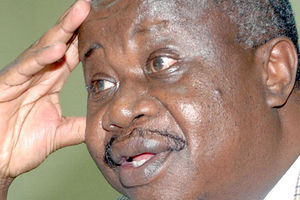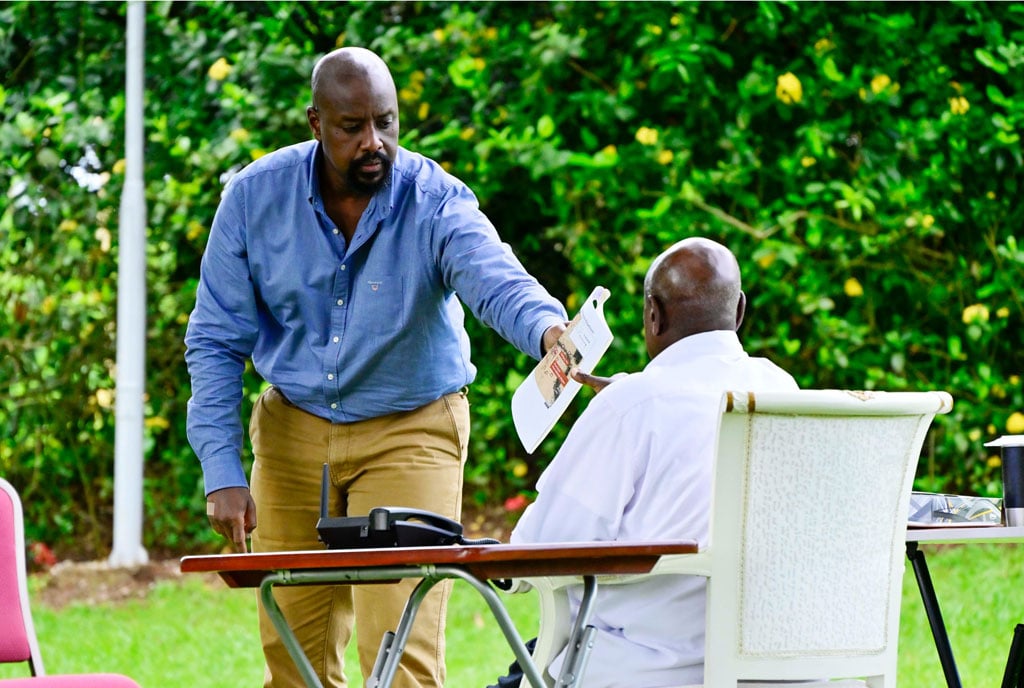
Author: Asuman Bisiika. PHOTO/FILE.
The end of Marshal Mobutu’s reign can be traced to the death in 1977 of his wife Marie-Antoinette.
As a token of remembrance, Mobutu renamed what was hitherto Lake Mobutu Sesse after his late wife: Lake Marie Antoinette Mobutu (now Lake Albert).
Still reeling from the death of his dear wife, some African military leaders (with whom he had close association) began falling from power one by one.
Then Mama Yemo (Mobutu’s mother) came to the rescue. She sought her son a new wife. Mama Yemo handed Bobi Ladawa to his son. Mobutu remarried in 1980.
So, you can imagine how much power Mama Yemo (Mobutu’s mother) had on the presidency: she had First Lady Bobi Ladawa and the president on her side). In fact, it is said that it is Mama Yemo who proposed (or advised or forced Mobutu) to marry First Lady Bobi adawa’s twin sister Kosia Ladawa.
So, the question is: how much influence can family have on a leader? For us monarchists, there are offices designated for particular members of the royal house. There is Sister Royal (Lhubugha), Queen Mother (Nyamusinga) and others.
This makes kingship such a collective responsibility of the royal family. It is quite different with republican settings. Least of all, most Ugandans my age don’t seem to have the experience of a very publically powerful member of the leader’s family.
Family members of the leader should and are expected to be doing things behind the scenes (advising or actually influencing the leader’s policy positions in private).
Ugandans have been treated with some curious X, formerly Twitter, posts by the Chief of Defence Forces, Gen Muhoozi Kainerugaba. But the recent one on the ‘Biggest Thief in Uganda’ was not only curious but eye-brow-raising. The post was engaging the Commander-in-Chief of the Armed Forces, President of the Republic of Uganda and Fountain of Honour in a manner manifesting casualness.
And then Ugandans were treated to another revelation: Mr Odrek Rwabwogo has disciples. Before this, Ugandans were used to MK Army (a mass support base associated with the idea and campaign for Gen Muhoozi to become President of Uganda). And before that, we had been used to Mzee’s bazzukulu (President Museveni’s grandchildren).
It is one thing to have relatives who influence your actions as a leader and quite another to have ambitious relatives. In 1979, the Republic of Equatorial Guinea witnessed a coup d’etat in which Theodore Obiang Nguema ousted Fransisco Macias Nguema. Worse: President Fransisco Nguema was killed in that coup staged by Theodore Nguema (his very close relative).
I have no issue with people close to Mr Museveni taking up national leadership in Uganda. They are as qualified as any Ugandan to be ambitious. The challenge has always been what one brings to the table. If your main asset is your proximity to Mr Museveni, then you need to work harder to convince Ugandans about your other leadership credentials.
Proximity to power should only enhance your (already worked for) national profile and should be treated as an added advantage (not the main qualification).
Some Ugandans have been quarrelling over Mr Museveni reference to bazzukulu. They demand to be addressed as citizens. I always took this as an oldman’s endearment but Ugandans, as they say, ‘don’t want to know’. They are citizens with legitimate demands from the President of Uganda.
Now, if you complain about an old man calling you muzzukulu (singular for bazzukulu), how about a man who heads your national army but has his ‘own army’? How about another man who is likely to call you his disciple?
Mr Bisiika is the executive editor of the East African Flagpost. Rwabogocom








